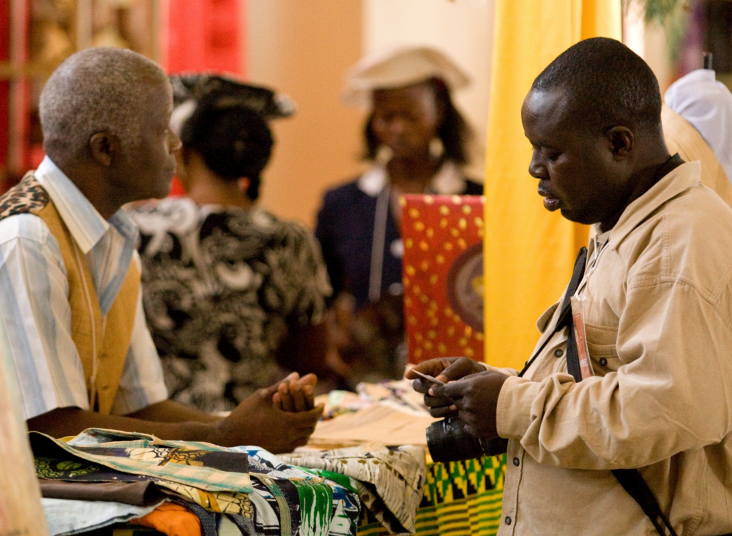- Where We Work
- Africa
- African Union
- Power Africa
- Trade and Investment
- Angola
- Benin
- Botswana
- Burkina Faso
- Burundi
- Cameroon
- Central Africa Regional
- Central African Republic
- Chad
- Côte d'Ivoire
- Democratic Republic of the Congo
- Djibouti
- East Africa Regional
- Eswatini
- Ethiopia
- Ghana
- Guinea
- Kenya
- Lesotho
- Liberia
- Madagascar
- Malawi
- Mali
- Mauritania
- Mozambique
- Namibia
- Niger
- Nigeria
- Republic of the Congo
- Rwanda
- Sahel Regional
- Senegal
- Sierra Leone
- Somalia
- South Africa
- South Sudan
- Southern Africa Regional
- Sudan
- Tanzania
- The Gambia
- Uganda
- West Africa Regional
- Zambia
- Zimbabwe
- Asia
- Europe and Eurasia
- Latin America and the Caribbean
- Middle East
- Mission Directory
Speeches Shim

Without a strong private sector, developing countries are hard pressed to find their way out of poverty. A strong economy leads to job creation, providing a stable foundation for economic growth. USAID works with an array of tools and approaches to strengthen private enterprise across the African continent.
To improve opportunities for private enterprise to flourish, it uses several approaches, including:
- Access to Finance, through efforts to improve the regulatory frameworks that encourage lending, support and encouragement to credit bureaus and banks to increase their risk, and identifying various options for small and medium enterprises to receive credit. Additionally, USAID’s Development Credit Authority offers an innovative approach to financing through partial credit guarantees to help entrepreneurs start their businesses.
- The Enabling Environment. By eliminating costly and time consuming regulatory barriers that prohibit entrepreneurs from pursuing their business objectives, USAID hopes to improves the business environment for emerging businesses.
- Links to Private Sector Engagement. USAID fosters market linkages by providing enterprise funds, challenge grants, and for-profit investment, in order to reach out to the private sector and build momentum in economic growth.
One of the ways that we are successfully building market linkages is through the Power Africa initiative. Across Africa, 600 million people live without electricity. Power Africa was established to eliminate the barriers preventing electricity access. Power Africa is based in six focus countries: Ethiopia, Ghana, Kenya, Tanzania, Liberia and Nigeria. Working with the private sector, host governments and donor agencies, Power Africa focuses on creating partnerships that will result in increased funding commitments to power projects.
Examples of USAID’s work in Private Sector Engagement in Africa include:
- In Kenya, with support from USAID, a firm called Soko is helping to build an e-platform for artisans to connect their work with potential interested buyers around the world, in order to lift themselves and their families out of poverty.
- With support from USAID’s Development Innovation Ventures, Solar Sister is scaling up a high impact program that will bring solar lighting and mobile phone charging technologies to 1.6 million Africans in Uganda, Tanzania, and South Sudan, where 50 percent of the population uses firewood or grass as the primary source of lighting and 27 percent have no lighting whatsoever. Solar Sister will recruit, train and launch 3,000 Solar Sister Entrepreneurs who will sell 315,000 solar lights and mobile phone chargers to provide clean energy services across East Africa.
- Through Power Africa, NextGen Solawazi’s solar power plant in Kigoma will have the capacity to power around 50,000 households even in its pilot stages. It is expected to generate about 10 gigawatts of clean electricity each year, reducing annual carbon dioxide emissions by about 10,500 tons.
LEARN MORE: Global Resilience Partnership
LEARN MORE: Private Investment Funds

Comment
Make a general inquiry or suggest an improvement.